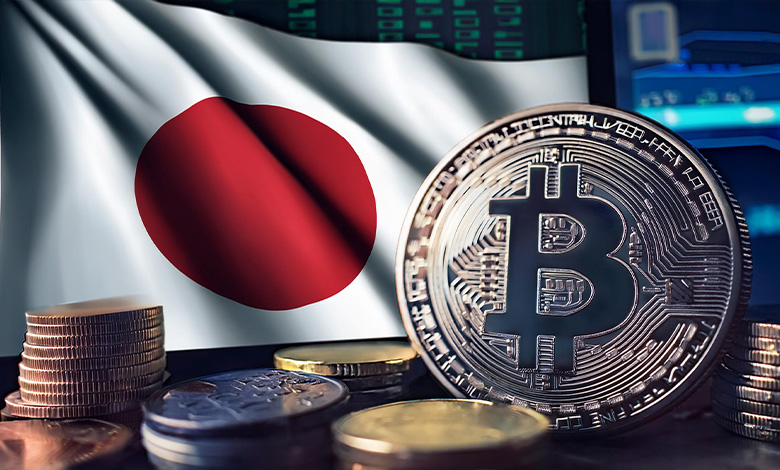Japan’s FSA Proposes Reclassifying Crypto Assets as Financial Products

Japan’s Financial Services Agency (FSA) is exploring a significant regulatory shift that would classify crypto assets as financial products under the country’s Financial Instruments and Exchange Act (FIEA), according to a report from local outlet CoinPost.
The FSA’s proposal suggests moving digital assets from the current Payment Services Act to the more comprehensive FIEA framework. A dedicated working group will also be established to focus on digital asset system reforms.
This proposed reclassification would mark a major regulatory transformation. By treating cryptocurrencies as “financial instruments,” the FSA aims to address key gaps in the current crypto oversight structure. The proposal will be formally discussed during the FSA’s General Council meeting on Wednesday, June 25.
A Response to Surging Crypto Adoption
The move comes amid rapidly rising domestic interest in digital assets. According to the FSA, Japan surpassed 12 million active crypto accounts as of January 2025, with crypto holdings on domestic platforms exceeding ¥5 trillion (approximately $34 billion). Remarkably, crypto participation now outpaces traditional investment vehicles like foreign exchange (FX) and corporate bonds—particularly among tech-savvy retail investors.
This boom in adoption strengthens the case for clearer regulations. “The goal is to create a well-balanced environment that protects users and promotes innovation,” the FSA emphasized.
From Payment Services to Securities Law
Currently, cryptocurrencies in Japan fall under the Payment Services Act, which governs digital payments. The proposed reclassification under the FIEA would formally define cryptocurrencies as “financial instruments,” a move that carries major implications for taxation, investor protection, and institutional access.
Notably, the reform would shift crypto gains from the existing progressive tax system—where gains can be taxed up to 55%—to a flat 20% capital gains tax, aligning crypto with stocks and improving accessibility for both retail and institutional investors.
Institutional Momentum and Bitcoin ETFs
Japan’s push for reform aligns with global momentum toward institutional crypto products. The FSA cited data showing over 1,200 financial institutions, including U.S. pension funds and Goldman Sachs, now hold U.S.-listed spot Bitcoin ETFs. Japanese regulators are eager to support similar developments domestically and reduce barriers to institutional participation.
Discussions around Bitcoin ETFs are already advancing at the policy level. Earlier this year, Parliamentary Vice-Minister of Justice Junichi Kanda met with JAN3 CEO Samson Mow to discuss “current initiatives to enable Japanese Bitcoin ETFs and reduce taxes on Bitcoin.”
Stablecoin Innovation Gaining Ground
The FSA’s efforts coincide with growing interest in stablecoin development—a key part of Japan’s broader digital finance strategy. In March, SBI VC Trade, a subsidiary of financial giant SBI Holdings, received the country’s first license to handle stablecoins and is preparing to support Circle’s USDC.
In April, Sumitomo Mitsui Financial Group (SMBC), TIS Inc., Ava Labs, and Fireblocks signed an MoU to explore the commercialization of stablecoins pegged to both the U.S. dollar and Japanese yen. Their collaboration also includes potential use cases such as settling tokenized real-world assets like stocks, bonds, and real estate.
Global Influence and Strategic Alignment
Japan’s proposed regulatory changes are reportedly influenced by the “proactive stance (…) taken by the Trump administration (…) and other U.S. government agencies such as Texas,” which recently became the first U.S. state to establish a publicly funded Bitcoin reserve.
The reforms align with Japan’s broader ambition to become an “investment-oriented nation,” expanding asset formation opportunities for its citizens through the growth of Web3 technologies and the digital asset space.
As part of this, regulators are considering splitting crypto into categories based on asset nature to tailor regulatory treatment. The FSA’s April draft also sought public input on measures related to business practices, information disclosure, and market integrity—such as rules on insider trading.
Japan Positions Itself in the Global Digital Currency Shift
Japan’s move to reclassify cryptocurrencies and expand its regulatory framework signals a broader effort to stay competitive in the rapidly evolving global financial landscape. As countries like the U.S. implement sweeping crypto legislation and launch government-endorsed digital asset initiatives, Japan is choosing a path of strategic refinement—modernizing rules, lowering tax burdens, and embracing new technologies like stablecoins.
Rather than rushing into central bank digital currency dominance or dollar-backed stablecoin models, Japan is crafting a regulatory environment that could bridge traditional finance and Web3.





